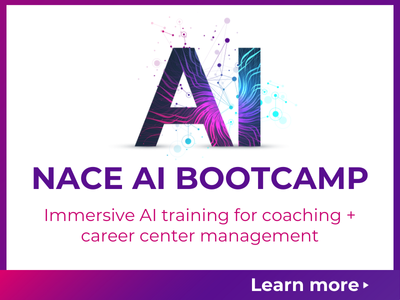A grant from the United Negro College Fund (UNCF) helped to move career services to a position of more prominence at Tougaloo College and embed career readiness in the school’s curriculum.
Founded in 1869 and located 25 miles north of Jackson, Mississippi, Tougaloo College—a private liberal arts HBCU with approximately 700 to 750 students—is etched in social justice and activism, and the latest transition of the school’s career center reflects this.
“In 2022, we moved career services from academic affairs to the division of strategic initiatives and social justice,” says Dr. Whitney McDowell-Robinson, vice president for enrollment management and student services at Tougaloo.
“Along with that, we changed the name. It’s no longer known as career services; it's now career readiness and innovative leadership.”
The key to career services earning a more prominent role at Tougaloo was the $2 million grant it received in 2016 from the UNCF Career Pathways Initiative, funded by the Lilly Endowment. The grant funded career services and career pathways, with a focus on providing more internships and embedding career readiness into the curriculum.
Dr. McDowell-Robinson, an alumna of Tougaloo, was asked to be the director of career services as a stand-alone office, initially within a student affairs structure.
“When I first transitioned to the role at the college back in 2014, career services had historically been a part-time role, meaning that someone did it in addition to another role that they had,” she explains.
“Historically, many Tougaloo students go straight from college to graduate and professional school. However, the institution recognized it needed to put more emphasis on those who did not pursue additional education right away.
“In 2014, I was asked if that would be my full-time job because we wanted to be a little bit more strategic with students for workforce placement as well, not just graduate school. It was an intentionality on students who were not going for further education so we could help them prepare for and transition to the workforce.”
With the grant, career services transitioned to academic affairs in 2018 to be closer to and engage the faculty. The reporting line had the director of career services and pathways and internship coordinator reporting to both the Provost and to Dr. McDowell-Robinson.
The impact of the changes dramatically increased the touchpoints with students, especially with faculty building career services into their curriculum and career services being pulled into different levels of the university fabric. On the employer side, changes included a career services council.
“When we received the grant, the biggest focus was to change and enhance the curriculum,” Dr. McDowell-Robinson says.
“We redesigned the general education curriculum. One of the pieces for accreditation was around our quality enhancement plan [QEP], which is all things career readiness. Our QEP is preparing students for tomorrow's professions.”
With the grant ending in May 2022, and despite it moving from academic affairs to the division of strategic initiatives and social justice, career readiness and innovative leadership will remain connected to academics and the curriculum.
“From my purview, there aren't any limitations because we built such a strong foundation with faculty around this work that they see the true scope of what career services does,” Dr. McDowell-Robinson says.
“At Tougaloo, career readiness and innovative leadership is now more than just the ‘resume people.’ Before these moves, there was not very much thought and consideration given to career services beyond that. With the initial shift of career services to academic affairs and now with it in strategic initiatives, faculty see it and are very supportive of it. There are more opportunities for engagement than there ever have been.”
Dr. McDowell-Robinson says that career services will benefit in new ways from this current structure.
“There are more opportunities for engagement than there ever have been,” she says.
“One of the key benefits is that strategic initiatives and social justice are an area of focus. Since the murder of George Floyd, almost every company and entity and agency has been a little bit more intentional about their funding for HBCUs. Strategic initiatives and social justice allows for additional funding for sustainability of the program outside of what academic affairs would have to offer.”
Career readiness and innovative leadership has achieved distinction and importance on campus.
“Because Tougaloo has two rivers on its campus that meet, we always kind of make a play on that, and say that our two streams are academic rigor and social justice,” Dr. McDowell-Robinson explains.
“By putting career services as what we traditionally would have known it as in strategic initiatives and social justice, it really kind of undergirds what we say our two biggest values are: our academic rigor and social justice.
“This shows that we're more serious about the work that we're trying to do, and how we're trying to leverage our students to not only just be successful academically, but to also make changes in the world.”






